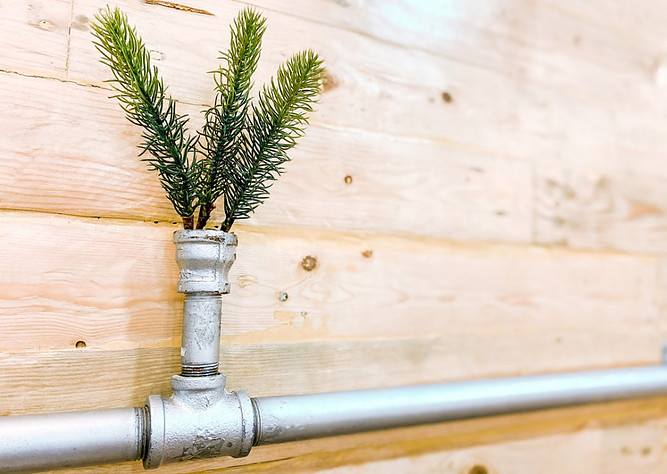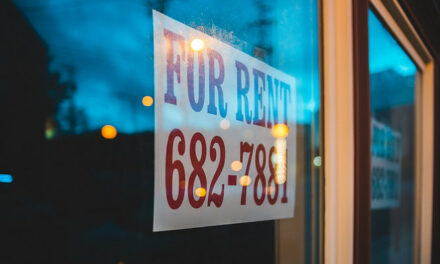If you are a landlord, if not already, you would receive unnecessary maintenance requests from your tenants at some stage. Yes, as a landlord, you have certain obligations to fulfil maintenance requests, but nuisance maintenance requests are not uncommon. This article will dive into 10 Things You Could Do If Your Tenant Make Unnecessary Maintenance Requests.
Whenever you rent your investment properties, there are certain rules and regulations that landlords should follow. One of these is providing a safe, comfortable and habitable environment to the tenant.
You are legally liable to provide them with a safe and decent living space. This includes fulfilling the essential maintenance requests to maintain a sanitary and safe place to stay. Suppose this is not a part of your tenancy agreement. In that case, certain actions can be taken against the landlord to make sure they fulfill these basic necessities for you.
In other words, maintaining your residential tenancy obligation is one of your utmost responsibilities as a landlord. However, your knowledge about maintenance calls, emergency maintenance vs. non-emergency maintenance requests, and unnecessary or nuisance maintenance requests will help you as well the tenant for a more meaningful relationship.
Let’s start by defining maintenance calls… What are they?
What is a Maintenance Request or Maintenance Calls?
When we come upon the concept of maintenance requests or calls, we may wonder what they really are.
A maintenance request or a maintenance call is the formal way of tenants asking their landlord to repair something that has broken down or is damaged. Suppose your properties are managed by a Rental Manager. In that case, these requests will be directed to them in the first instance and based on your arrangements with your Rental Manager; you will be asked to organize the repair.
Usually, these requests come in a format of a “Maintenance Request Form” or formal email written by the tenant to the property owner (that is you). These requests are considered ‘Formal’, comes with the date, the problem, and considered legally valid.
For example, if you ever needed to go to court, those maintenance requests can be used as a reference.
A maintenance request or maintenance call is necessary because if something that was responsible for keeping the tenant secure and safe is damaged, you need a professional to fix it at such times of need.
Remember, trying to do it yourself will only be risky and may cause further harm in the long run. Hence, you as the landlord need to organize professionals (e.g. electricians, plumbers…etc.) is the right step to take in this regard.
Emergency Maintenance vs. Non-emergency Maintenance Requests
There are different types of maintenance requests that people may contact their landlord for, which include emergency maintenance requests and non-emergency maintenance requests.
Non-emergency maintenance requests can be taken lightly and dealt with later with some breathing space. However, emergency maintenance requests should be immediately looked upon and sorted out on an urgent basis, usually within 24hrs.
Emergency maintenance requests are dangerous and should be taken very seriously. As you may gather, if not attended on time, those faults can considerably endanger the tenant’s life, lifestyle, and the property itself.
For example, if there is a gas leak, that can lead to a fire destroying tenant’s livelihood and your property.
Let’s explore a bit more on emergency vs non-emergency maintenance requests…
What is an Emergency Maintenance Request?
An emergency maintenance request is something that is life-threatening. Not only does it possess the risk to cause serious injury and harm, but it can also damage several things and should be sorted out urgently.
This can include a fire, a broken water pipeline, no availability of heating in winters, and cool in summers. All of these possess the qualities of causing severe harm.
A fire can cause injuries, whereas a broken water pipeline can result in an overflow of water and thus flooding and damage to all the items in the house.
On the other hand, no cooling in extreme summers can lead to heatstroke. In contrast, no heating in winters can lead to hypothermia. These are all serious issues and so should be fixed immediately by the landlord.
Tip: In Australia, all rental properties should have adequate cooling; however, heating is not compulsory since Australian winter is considered ‘mild’.
What is a Non-Emergency Maintenance Request?
A non-emergency maintenance request is something that can be delayed to a certain extent. They are usually not life-threatening, nor does it greatly damage anything.
These are the common repair requests, such as a need for plumbing alteration, pest control, or fixing of cracks in the wall. These can be done by the tenant as well, but it is risky, and so a professional should directly be called upon to fix these basic issues.
Although they are not urgent, they too are important obligations of the landlord to pay attention to and get fixed as soon as possible, usually within a few weeks.
Now, let’s turn on to nuisance requests to fix minor issues.
Legitimate Maintenance Requests vs. Being a Nuisance
Around 32% of people in Australia live as tenants. Knowing this, however, many tenants and landlords fail to understand which maintenance requests are legitimate and which ones are a nuisance.
To identify a legitimate maintenance request, it should be mentioned in the tenancy agreement and relevant to the house rented.
Not only this, the item that needs fixing should have come with the rented property and not be something the tenant personally brought along with them. This can include any fault in the plumbing or electric cables and not the microwave the tenant brought with themselves.
Along with this, another means of identification for a legitimate maintenance request that should be looked upon is that it comes with some danger. Suppose something belonging to the landlord is a means of causing danger to the tenant. In that case, it should be looked upon by the landlord immediately.
Keeping this aside, the tenant should also understand that a legitimate maintenance request is a legally binding and so should be written formally and not just directly called and told to the landlord or their manager about.
On the other hand, a nuisance maintenance request is the individual’s own fault which they are blaming on the landlord. Not only this, but these basic maintenance acts can be performed by the individual, and thus, the item can be fixed directly as well without having to involve the landlord.
Adding on to this, a nuisance maintenance request is also when some sort of damage or harm happens to your property, and you want the landlord to solve this issue. This will not be treated as a problem by the landlord, and instead of putting up a maintenance request, you should simply get it fixed by tenants by themselves.
Common Examples of Nuisance Maintenance Calls
Here are some examples to help you understand it better…
- No power
One of the major useless maintenance calls is telling the landlord there is no power but not considering that there is a local power outage.
- Air conditioner not working
Another solid example is telling your landlord how your Air conditioner is not working, but in actuality, the air conditioner remote’s battery is either low or dead.
- Sewer is blocked
Adding onto this, another nuisance maintenance request is calling the landlord and telling how the sewer is blocked, not considering that this will happen after they try to flush papers (other than toilet papers) and condoms in the toilet.
- Door lock not working
Moreover, another example of a nuisance maintenance request is telling the landlord that the door lock is not working, but instead, the tenant actually has lost the keys.
Now let’s look at how you as a landlord can handle repetitive unnecessary maintenance requests from your tenants…
10 Things To Do If Your Tenant Make Unnecessary Maintenance Requests
1. Listen to the tenant and make a record of the request
Listening to your tenant is essential to maintain a good relationship with this. When you listen to their needs, they feel acknowledged and needed, and thus they are more likely to be happy staying at your property.
Furthermore, when they are satisfied and feel listened to, they are less likely to stop the rent or take any action since they will maintain a friendly relationship with you as a landlord.
Tip: Regardless, our recommendation is to hire a Rental Manager.
2. Provide a written acknowledgment that you received the request
When you provide a written acknowledgment to the tenant, they feel respected. There is also proof for both ends to be kept in a record if needed in the future in terms of paperwork or anything whatsoever.
For example, if your tenant blames and accuses you of not listening and fulfilling the basic needs. In that case, you will have the necessary proof to show that you have indeed understood and provided them with whatever they needed.
3. Confirm if it is an Emergency or Non-emergency
This is the most important step that should be taken into consideration immediately as a maintenance request comes in.
An emergency maintenance request is dangerous and urgent action should be taken with regard to solving the issue as it may cause several further troubles, damages, and even injuries.
On the contrary, for a non-emergency request, inform the tenant that you have understood their request and write to them regarding any slight delay in sorting out the problem. In that way, they too feel as if they have been heard and do not need to be on your back constantly.
4. Organize a trades person (e.g., plumber if it is a blocked toilet) to visit
Whether an emergency maintenance request or a non-emergency maintenance request, the landlord should start looking for a trained professional or a trades person who can resolve the issue.
Having them already in contact is an added benefit as the landlord will not have to go through the hassle of finding one they can easily trust since they may have worked with the person in contact beforehand. Even if you as a landlord do not have a trades person since before, you should find one to solve the trouble right now and keep in contact with them for any problems or issues in the future as well.
Tip: In this article, we cover how to choose an electrician for rental property maintenance.
5. If it is a nuisance maintenance request, get a written confirmation from the trades person
For a nuisance maintenance request, have the trades person confirm and then write down the details so that you as the landlord have proof to prove your point to your tenant.
This written confirmation will ensure assurance and guarantee to the tenant. Once they understand, they will not refer to the landlord regarding any similar nuisance maintenance requests, which will just further waste time and money of the landlord.
6. Write to the tenant about the maintenance issue with a warning
If the tenant continues to send nuisance maintenance requests. In that case, the landlord should immediately write to them and take strict measures such as telling them that if there are any future nuisance maintenance requests, the tenant will have to pay the cost of the trades person.
The landlord is not responsible for paying for the trades person every single time without a legitimate reason. So, you should consider passing the trades person’s service fee to the tenant if they are at fault and if the law allows.
7. Maintain prompt and professional communication with the tenant
All these things aside, it is important for a landlord to maintain a professional relationship with their tenants. The landlord must keep them updated regarding whatsoever is going on.
Good communication leads to a good relationship, and so the tenant is also less likely to worry.
This will also make sure that your tenants do not bother you in the future in order to get an update regarding where their maintenance request is at and when the problem will be solved.
8. Add a statement about nuisance maintenance calls to Tenancy Agreement Renewal
One of the most important things that most landlords fail to consider is adding an agreement regarding any nuisance maintenance calls in the tenancy agreement. Thus, come to an agreement with the tenant that they have to pay the trades person’s service fee for each false maintenance request.
To keep themselves safe, the landlord should add the necessary terms, and make sure the local laws allow landlords to do so. This should include a clause that does not include the maintenance calls about a non-repairable item in the property too, if possible.
Moreover, it should also talk about the tenant paying the fee for any nuisance maintenance call. The tenancy agreement should be carefully written while keeping all the different aspects in mind that may cause trouble in the future to avoid any further hassle for the landlord.
Remember, after all the intention is always to do the correct thing as the landlord. The intention should never be about not responding to legit service maintenance requests, but to ensure that the landlord does not spend money on tenants’ irresponsible behavior.
9. If the nuisance maintenance calls continue, don’t renew the Tenancy Agreement
One of the major steps that the landlord can take if there are consistent nuisance maintenance calls is not to renew the tenancy agreement.
It is an added hassle if the tenant does not understand the landlord’s point and constant reminder. So, they should simply avoid the trouble and stay stress-free and thus not renew the agreement.
Remember, most tenants are very responsible ones, while there are a minority who are irresponsible. So, why don’t you get rid of the bad tenant and shoot for a better one?
10. Find a better tenant
There are several people who are looking for homes at a given time.
Finding a new tenant will not be hard if the current one is only causing distress and not understanding the landlord’s basic point of view.
Making constant nuisance maintenance calls is unacceptable and an added issue which only causes further time delays and schedule interruptions in the future. Hence, it is better to avoid them completely.
Final Thoughts
In conclusion, I should remind you that there are many things you can do whenever your tenant has made unnecessary maintenance requests. However, you need to understand the difference between these requests from legit emergency and non-emergency maintenance requests you as the landlord 100% responsible for and thus take action as per the need.
This can be done by ensuring that a statement about nuisance maintenance requests is signed upon in the tenancy agreement.
From giving a warning to the tenant to removing them from the property, everything should be under your control in the agreement to ensure a safe procedure throughout when your property is put out for rent. Make sure you do not have to go through the hassles of fulfilling the unnecessary requests, where the tenant is at fault.





